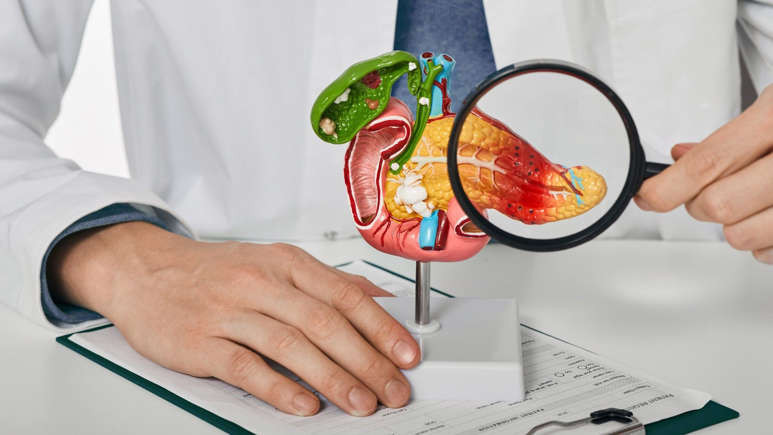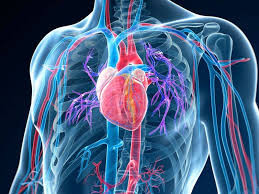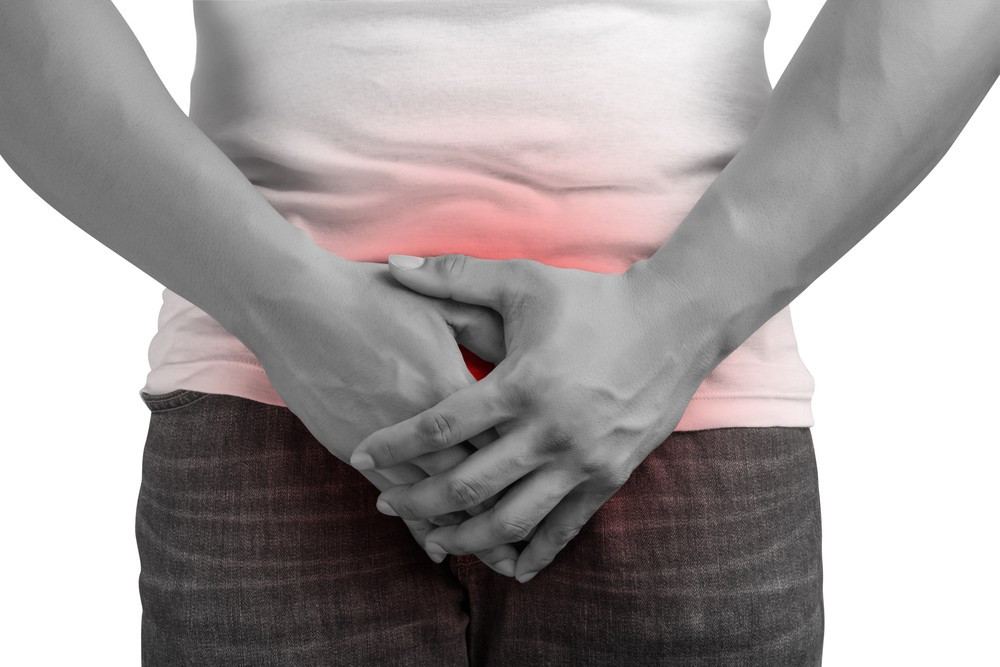Recently Vox published an article on seven bad science or health myths they’d like to become extinct in 2017. It’s an interesting read in its own right, but here at the Blue Ribbon Foundation, we’re interested in the health points. The key issue that caught our eye was the myth that “Exercise will help you lose weight”. As you may recall, we covered this issue back in April 2016 “Burning off a bad diet”…but this is one of the myths that refuses to die! So in the spirit of ‘out with the old, in with the new’, and looking forward to a healthier 2017, it’s time to put this to bed once and for all.
 This is a good idea anyway, but…
First, yes if we exercise more, we will burn more calories. But let’s be clear – our bodies burn the most calories just by…yup, keeping us alive. Most of your energy consumption goes on keeping your heart beating, your lungs breathing, and your brain ticking over (that’s a technical medical term). To be clear, exercise is a phenomenal way of improving the functioning of your body, and staving off illness. But unless we’re exercising an enormous amount (which will be very hard to sustain if you’re not a professional athlete), it’s not going to put much of a dent in our daily calorie consumption.
So if we’re looking to lose weight for health or vanity reasons (both are fine!), we have to look at reducing our calorie intake from food – in short, eat less. To do that in the most healthy, sustainable way, there are plenty of approaches out there to inspire (see our other blogs below for tips on how to set realistic goals). The key is to make changes slowly, with a clear plan, and also make sure that we’re eating a balanced diet. For instance, we could cut down our calories significantly but still live just on a crisps and beer-only diet, which while tasty, isn’t going to be the most nutritionally balanced.
Why does this myth persist? One explanation is that being (a) slim and (b) fit are usually conflated – it’s rare to find discussion or imagery of people who are overweight but fit, partly because while you may be fit as an overweight person, your health will still be at risk due to being overweight. In this way, the idea of being both slim and fit leads to people believing in a causal relationship – i.e. you’re slim BECAUSE you are fit. This (mis)conception is also often touted by some food and drink companies whenever health experts decry the fat or sugar content of their products (“It’s not our product, people should go for a run more”, etc.).
This is a good idea anyway, but…
First, yes if we exercise more, we will burn more calories. But let’s be clear – our bodies burn the most calories just by…yup, keeping us alive. Most of your energy consumption goes on keeping your heart beating, your lungs breathing, and your brain ticking over (that’s a technical medical term). To be clear, exercise is a phenomenal way of improving the functioning of your body, and staving off illness. But unless we’re exercising an enormous amount (which will be very hard to sustain if you’re not a professional athlete), it’s not going to put much of a dent in our daily calorie consumption.
So if we’re looking to lose weight for health or vanity reasons (both are fine!), we have to look at reducing our calorie intake from food – in short, eat less. To do that in the most healthy, sustainable way, there are plenty of approaches out there to inspire (see our other blogs below for tips on how to set realistic goals). The key is to make changes slowly, with a clear plan, and also make sure that we’re eating a balanced diet. For instance, we could cut down our calories significantly but still live just on a crisps and beer-only diet, which while tasty, isn’t going to be the most nutritionally balanced.
Why does this myth persist? One explanation is that being (a) slim and (b) fit are usually conflated – it’s rare to find discussion or imagery of people who are overweight but fit, partly because while you may be fit as an overweight person, your health will still be at risk due to being overweight. In this way, the idea of being both slim and fit leads to people believing in a causal relationship – i.e. you’re slim BECAUSE you are fit. This (mis)conception is also often touted by some food and drink companies whenever health experts decry the fat or sugar content of their products (“It’s not our product, people should go for a run more”, etc.).
 Eating less, and well, is the key way to lose weight if that’s your goal
But probably the better explanation lies with us. It often feels harder to change our eating or drinking habits, because they are just that: habits. When we are stuck into a way of doing something, it can be challenging to alter our behaviour. Also, just like with building up our fitness, the immediate effects we feel might be negative, including hunger or cravings (compared with sore feet or tiredness with exercise). That can make it a challenge to persist through to the feel-good impact later on, but it is worth it. Why not feel more healthy, more alert, sleep better, have improved skin and generally feel less rough all round?
Let’s make 2017 the year we put the myth of ‘exercise = weight loss’ to bed, and embrace both eating better, drinking less, and yes, exercising regularly!
Eating less, and well, is the key way to lose weight if that’s your goal
But probably the better explanation lies with us. It often feels harder to change our eating or drinking habits, because they are just that: habits. When we are stuck into a way of doing something, it can be challenging to alter our behaviour. Also, just like with building up our fitness, the immediate effects we feel might be negative, including hunger or cravings (compared with sore feet or tiredness with exercise). That can make it a challenge to persist through to the feel-good impact later on, but it is worth it. Why not feel more healthy, more alert, sleep better, have improved skin and generally feel less rough all round?
Let’s make 2017 the year we put the myth of ‘exercise = weight loss’ to bed, and embrace both eating better, drinking less, and yes, exercising regularly!
 This is a good idea anyway, but…
First, yes if we exercise more, we will burn more calories. But let’s be clear – our bodies burn the most calories just by…yup, keeping us alive. Most of your energy consumption goes on keeping your heart beating, your lungs breathing, and your brain ticking over (that’s a technical medical term). To be clear, exercise is a phenomenal way of improving the functioning of your body, and staving off illness. But unless we’re exercising an enormous amount (which will be very hard to sustain if you’re not a professional athlete), it’s not going to put much of a dent in our daily calorie consumption.
So if we’re looking to lose weight for health or vanity reasons (both are fine!), we have to look at reducing our calorie intake from food – in short, eat less. To do that in the most healthy, sustainable way, there are plenty of approaches out there to inspire (see our other blogs below for tips on how to set realistic goals). The key is to make changes slowly, with a clear plan, and also make sure that we’re eating a balanced diet. For instance, we could cut down our calories significantly but still live just on a crisps and beer-only diet, which while tasty, isn’t going to be the most nutritionally balanced.
Why does this myth persist? One explanation is that being (a) slim and (b) fit are usually conflated – it’s rare to find discussion or imagery of people who are overweight but fit, partly because while you may be fit as an overweight person, your health will still be at risk due to being overweight. In this way, the idea of being both slim and fit leads to people believing in a causal relationship – i.e. you’re slim BECAUSE you are fit. This (mis)conception is also often touted by some food and drink companies whenever health experts decry the fat or sugar content of their products (“It’s not our product, people should go for a run more”, etc.).
This is a good idea anyway, but…
First, yes if we exercise more, we will burn more calories. But let’s be clear – our bodies burn the most calories just by…yup, keeping us alive. Most of your energy consumption goes on keeping your heart beating, your lungs breathing, and your brain ticking over (that’s a technical medical term). To be clear, exercise is a phenomenal way of improving the functioning of your body, and staving off illness. But unless we’re exercising an enormous amount (which will be very hard to sustain if you’re not a professional athlete), it’s not going to put much of a dent in our daily calorie consumption.
So if we’re looking to lose weight for health or vanity reasons (both are fine!), we have to look at reducing our calorie intake from food – in short, eat less. To do that in the most healthy, sustainable way, there are plenty of approaches out there to inspire (see our other blogs below for tips on how to set realistic goals). The key is to make changes slowly, with a clear plan, and also make sure that we’re eating a balanced diet. For instance, we could cut down our calories significantly but still live just on a crisps and beer-only diet, which while tasty, isn’t going to be the most nutritionally balanced.
Why does this myth persist? One explanation is that being (a) slim and (b) fit are usually conflated – it’s rare to find discussion or imagery of people who are overweight but fit, partly because while you may be fit as an overweight person, your health will still be at risk due to being overweight. In this way, the idea of being both slim and fit leads to people believing in a causal relationship – i.e. you’re slim BECAUSE you are fit. This (mis)conception is also often touted by some food and drink companies whenever health experts decry the fat or sugar content of their products (“It’s not our product, people should go for a run more”, etc.).
 Eating less, and well, is the key way to lose weight if that’s your goal
But probably the better explanation lies with us. It often feels harder to change our eating or drinking habits, because they are just that: habits. When we are stuck into a way of doing something, it can be challenging to alter our behaviour. Also, just like with building up our fitness, the immediate effects we feel might be negative, including hunger or cravings (compared with sore feet or tiredness with exercise). That can make it a challenge to persist through to the feel-good impact later on, but it is worth it. Why not feel more healthy, more alert, sleep better, have improved skin and generally feel less rough all round?
Let’s make 2017 the year we put the myth of ‘exercise = weight loss’ to bed, and embrace both eating better, drinking less, and yes, exercising regularly!
Eating less, and well, is the key way to lose weight if that’s your goal
But probably the better explanation lies with us. It often feels harder to change our eating or drinking habits, because they are just that: habits. When we are stuck into a way of doing something, it can be challenging to alter our behaviour. Also, just like with building up our fitness, the immediate effects we feel might be negative, including hunger or cravings (compared with sore feet or tiredness with exercise). That can make it a challenge to persist through to the feel-good impact later on, but it is worth it. Why not feel more healthy, more alert, sleep better, have improved skin and generally feel less rough all round?
Let’s make 2017 the year we put the myth of ‘exercise = weight loss’ to bed, and embrace both eating better, drinking less, and yes, exercising regularly!





